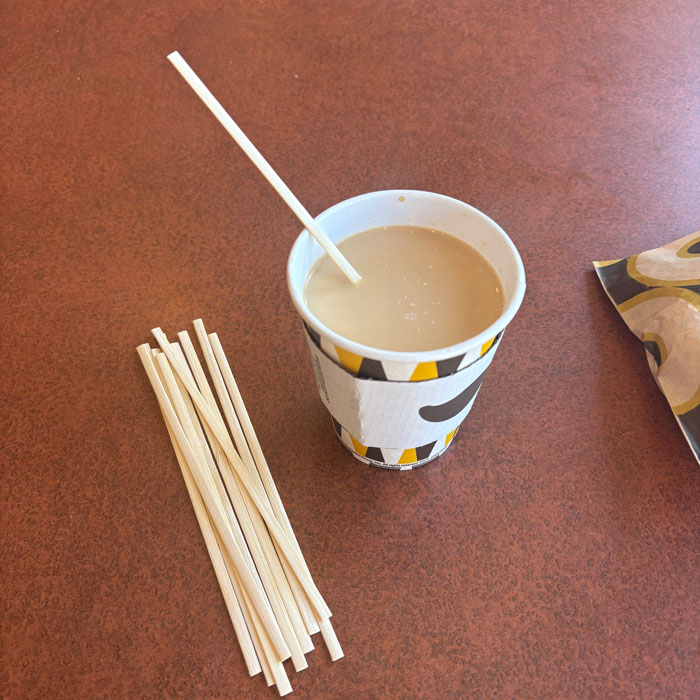
When most people think of exports, commodities like oil, cocoa, or cashews come to mind. But sometimes, the biggest opportunities hide in small, everyday items. Take coffee stirring sticks, a product used daily in coffee shops, offices, hotels, and airlines across the United States. With plastic bans spreading across U.S. states, demand for wooden and bamboo stirrers is surging, creating a profitable opening for Nigerian exporters.
Coffee stirrers are simple, high-volume consumables. In 2025, U.S. coffee and snack shops generated nearly $73 billion in revenue across more than 90,000 businesses. Every one of those cafés, plus thousands of hotels and offices, needs a steady supply of stirrers. With millions of cups of coffee sold daily, this is a market that consumes and replenishes fast.
Plastic stirrers are being phased out in favor of eco-friendly alternatives. This gives wood and bamboo a natural advantage. For Nigerian producers, raw materials like Gmelina wood and bamboo are abundant, renewable, and well-suited for manufacturing smooth, splinter-free stirrers. By leaning into “Plastic-Free, Made in Nigeria” branding, exporters can differentiate themselves while meeting U.S. buyers’ sustainability requirements.
Breaking into the U.S. market means clearing compliance hurdles. Nigerian exporters will need to provide Lacey Act declarations on wood species and origin, use ISPM-15 treated pallets to prevent pest contamination, and ensure products are FDA food-contact compliant since stirrers touch beverages directly. Offering credible sustainability certifications like FSC or PEFC can also open doors to large chains. Meeting these standards upfront builds trust and prevents costly delays at U.S. ports.
The U.S. stirrer market can be tapped through several channels, including foodservice distributors who supply cafés and restaurants, coffee chains both national and regional, online B2B platforms like Amazon Business, and private label programs where exporters produce stirrers under a distributor’s or chain’s brand. Packaging plays an important role too. One thousand sticks per bag, ten bags per carton, with clear country-of-origin labeling and eco-friendly claims make the product buyer-friendly.
With efficient sourcing and production, stirrers can be manufactured in Nigeria at competitive costs. By the time they land in U.S. warehouses, they can still be priced well below retail, allowing healthy margins for both importers and distributors. At scale, Nigerian exporters could become credible suppliers to U.S. chains eager for reliable, sustainable alternatives.
Nigeria does not have to limit itself to big-ticket exports. Everyday products like coffee stirrers, driven by plastic bans, rising coffee culture, and sustainability demands, represent a scalable, profitable niche. With the right compliance, packaging, and partnerships, Nigerian entrepreneurs can turn a simple stir stick into a global success story.
Mbariket | 10x U.S.—Nigeria Exports
Driving $100M in export revenue by 2028
